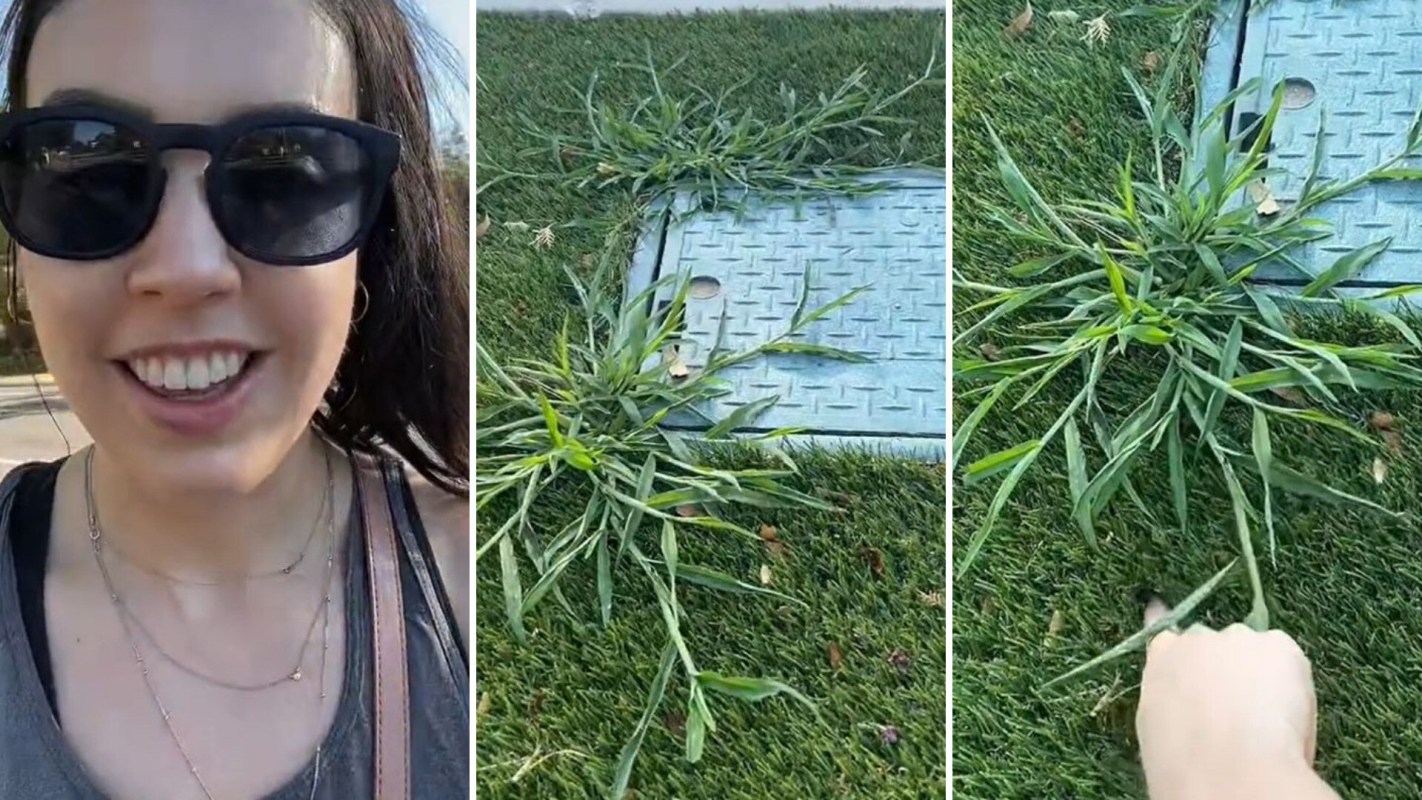Artificial turf gets plenty of buzz as an alternative to grass, but many homeowners who venture down that path have regretted the decision.
The Guardian reported that demand for the fake stuff in Britain is down two-thirds from 2021.
The drawbacks — including a high installation cost, cleaning up debris, and a super hot surface — are so problematic that turf can decrease property values by 5%.
The scoop
Daryl Lindsey, founder of YardFarmer.co, has a solution: Avoid artificial turf.
On TikTok last year, Daryl (@yardfarmer.co) shared a 27-second video about why she hates artificial turf. After coming across a park strip with the material while walking her dog, she pointed out a few weeds around an inground box.
@yardfarmer.co Artificial turf is stupid and bad. It puts more plastic into landfills, contributes to heat island effect, presents numerous health risks, and harms the soil ecology underneath. It also looks boring and uninspired. We can do better!!! #cancelartificialturf #notoartificialturf #artificialturf #sustainablelandscaping #sustainableyards #betteryardsbetterclimate ♬ original sound - Daryl | Sustainable Landscapes
Though a few commenters said the turf hadn't been installed correctly, weeds can be a problem with synthetic grass no matter what — just as they are with landscape fabric.
"It still has weeds because guess what? The weed seeds travel by air, land on the turf, and then root in anyway," she said. "So, you still have to weed this b****, and it's killing and leaching toxins into your soil underneath. So, no to artificial turf."
"What's even the point then?" one commenter wrote.
Daryl responded: "There isn't any point to it. People just don't know any better. But we'll change that!"
Weeds may be the least of the concerns with turf, which has been linked to the cancer deaths of six baseball players who spent much of their careers on the artificial surface at Philadelphia's Veterans Stadium.
Kids and young adults who use similar fields have also been diagnosed with cancer. The crumb rubber infill in modern plastic grass may be the cause, but proving it may be impossible.
Still, the forever chemicals used to manufacture turf are known to cause negative health outcomes.
Turf has also been linked to an increase in injuries among National Football League players.
What everyone's saying
Instead of turf, homeowners can turn to native plants as grass lawn alternatives, which don't present risks and benefit wildlife by creating mutualistic relationships.
In other spaces, such as parks and stadiums, it might be much harder to avoid the phony grass, though cities across the United States have banned it.
"Artificial turf is stupid and bad," Daryl wrote. "It puts more plastic into landfills, contributes to heat island effect, presents numerous health risks, and harms the soil ecology underneath. It also looks boring and uninspired. We can do better!!!"
One commenter said: "I had someone once say — but it's so much less watering — and I said… so are native plants that just drink from the ground … 😳 was their look."
Join our free newsletter for easy tips to save more, waste less, and help yourself while helping the planet.









